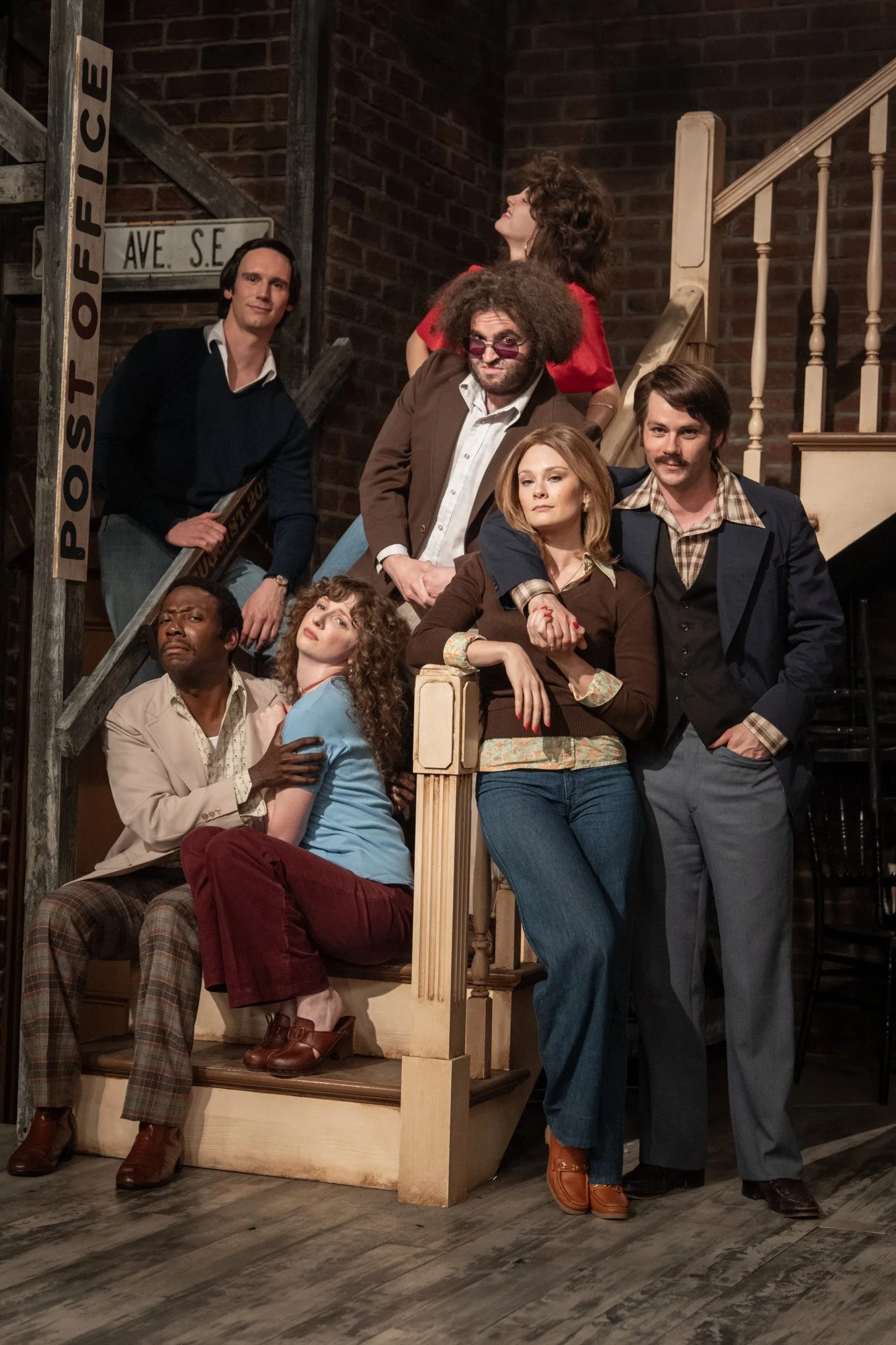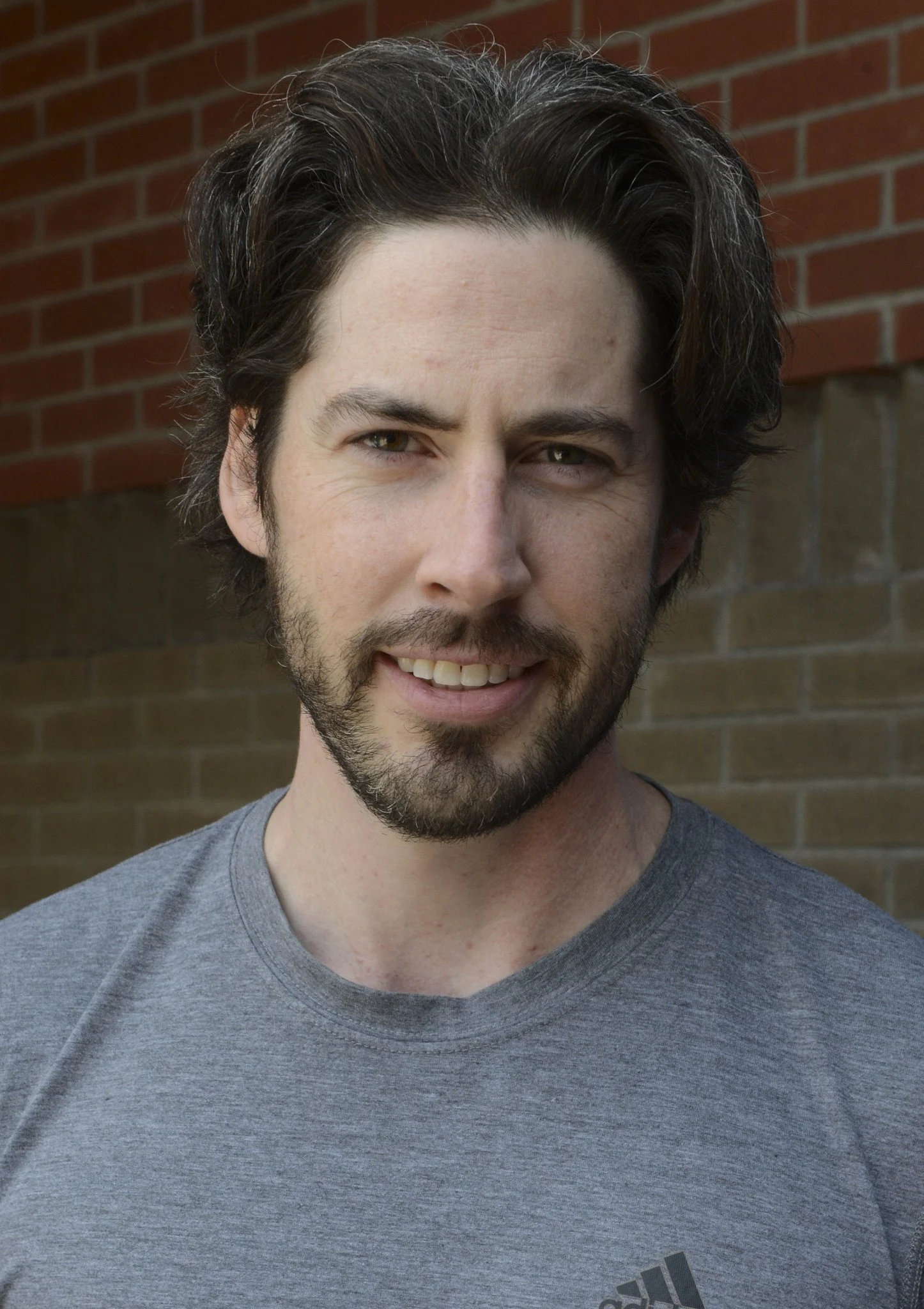Original-Cin Chat: Saturday Night director Jason Reitman on SNL's Generational Reach
By Jim Slotek
Like all fans of Saturday Night Live, filmmaker Jason Reitman has a favourite era.
And it isn’t the original Not Ready For Primetime Players who frantically took to the air on Oct. 11, 1975, and who are the subjects of his real-time feature Saturday Night (which dramatizes the 90 minutes leading up to that improbable first 90 minutes).
For one thing, he wasn’t born yet.
“My experience with SNL was like everybody else’s,” Reitman said in a roundtable interview as the film debuted at the Toronto International Film Festival.
Reitman’s Not Ready For Prime Time Players
“I think there’s an age where you’re allowed to drink, there’s an age when you’re allowed to drive, and there’s an age where you’re allowed to stay up and watch Saturday Night Live.
“It’s the reason why every generation thinks that the cast from when they were a teenager is the best cast of all time. And while Chevy Chase and Gilda Radner and John Belushi and Dan Aykroyd were innovative in 1975, I would say the same thing about Adam Sandler. I would say the same thing about Lonely Island.
“When you watch Andy Samberg for the first time as a teenager, you go ‘Finally there’s someone on television who sounds just like me, who echoes what I feel.”
Read our review of Saturday Night
“And I’m sure there are some people who feel the same way about Pete Davidson. But I’m from a comedy household (Reitman’s late father was the producer/director Ivan Reitman), and I remember watching Will Ferrell, at the Groundlings (Theatre) in L.A. in a 99 seat theatre and going, “Oh my god, I’ve never seen comedy like this!’
“And when he got called up to SNL, it was almost like one of the seniors in my high school went to the Big Show.”
Jason Reitman
But given his bloodlines and connection to comedy, there was something even more resonant in Reitman’s SNL fandom than simply a favourite performer or two.
“I’d watched the process of how comedy was created. I had a sense of that. And all I could think of when I saw this as a kid was, ‘I can’t believe they do this every Saturday!’
“It felt too special, bigger than the Super Bowl, bigger than the Oscars, the fact that every Saturday they do 90 minutes of new comedy. I couldn’t wrap my head around that. It became an early dream of mine to be a writer for Saturday Night Live.”
And he would (more on that later), but more importantly, he lived the dream of recreating the very birth of Saturday Night Live.
Interestingly, Reitman says a green light for Saturday Night was not hard to come by, with one common concern.
“I’d say, ‘I want to make a comedy about the first SNL.’ And every time I told people the idea, they actually dug it. And I’d go, ‘It’s the 90 minutes leading up to the point where they go ‘Live… from New York, it’s Saturday Night!’ And they’d go, ‘Gosh, that’s cool!’
“And then the next thing they’d say was, ‘How the fuck are you going to cast this? Where are we going to get a cast that looks like that? There can’t be any weak links.’
It meant finding a cast of relative unknowns with a quality that evoked the originals.
“It was casting where they didn’t feel like parodies,” Reitman said. “It comes down the essence of how you cast any character, and what is the most important piece of DNA you need to capture.
“With Gilda, it was her empathy. And I found that in Ella Hunt’s eyes and voice.
“In Garrett Morris, it’s this search for identity, and with Lamorne Morris (no relation), who is a genius comedian, it’s also about what is it like to be looking for identity as the only Black actor on an all-White show. With Chevy Chase it’s his ego. What is it like to be a. comedian touched by God and have an ego that needs to be humbled?
“And there’s this utter confidence in Cory Michael Smith (as Chevy) that cracks it, that broken smile is just perfect. I find if you can just capture those moments, then it just becomes about their energy, their chemistry, the way they work together. And I was very lucky this cast is an ensemble, kind of the way they sing together, that was just glorious.”
The work in casting Saturday Night seems ridiculously intense, from creator Lorne Michaels (Gabriel LaBelle) to virtually every crew member at the famed Studio 8H at 30 Rock. (Hundreds were interviewed, and the movie itself has more than 80 speaking roles).
Indeed, the only recognizable faces are in tangential roles – Willem Dafoe as NBC executive Dave Tebet, J.K. Simmons as Milton Berle, representing an older generation’s hostility to the entire SNL project.
“It’s the story of art, one generation not ready to give up control and one taking it away,” Reitman says. “Every generation wants things to stay the same. That’s how it’s always been.
“What’s special about this group was they took something that was happening in nightclubs and at Second City and at the Village with kids, and they got it on television.
“And suddenly, every young person in America had an opportunity to turn on the TV and see people who looked like them and sounded like them. It was not only a kind of comedy, it was the way the actors looked.
“There was nobody who looked like Gilda Radner and John Belushi on network television. They were showcasing music that was actually the music of the era. They had an absurdist sense of humour that flew in the face of Sid Caesar and all the variety shows that came before.”
As for Reitman’s career as an SNL writer, it came in 2008, when he spent a week as a guest writer.
“I got one sketch on the air, and it was called Death By Chocolate. It was a guy dressed up as a chocolate bar who has a taste for murder and he’s killing people.
“It made no sense, and I’ll be honest. I got three sketches into the table read, and the last thing I ever thought they would say yes to was Death By Chocolate.
“It was just a little piece of insanity, and I’m just very proud that it had a very, very, very tiny piece of SNL history.”




